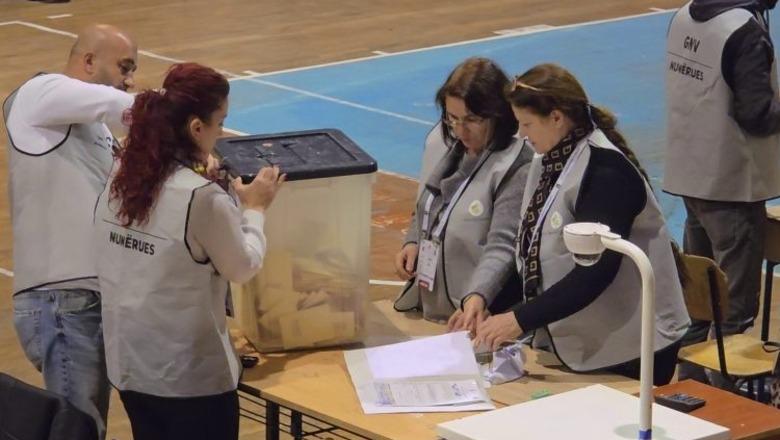Socialists sweep all five municipalities in low-turnout local by-elections

The ruling Socialist Party (SP) won Sunday’s partial local elections in all five municipalities where voting took place — Vlora, Berat, Mat, Tepelenë, and Cërrik — securing landslide victories in each. But the dominant wins were overshadowed by record-low voter turnout.
Why is this important: While SP candidates won over 60% of the vote in every municipality, overall turnout was just 18.45%, one of the lowest ever recorded in local Albanian elections. The lowest participation was in Vlora (12.54%), while Mat registered the highest with 39.36%. Analysts and officials warn this trend may reflect growing public apathy and dissatisfaction, especially amid a fragmented and weak opposition.
Context: In Vlora, Socialist candidate Brunilda Mersini made history as the first female mayor of the city, winning 78.44% of the vote. Dionis Sota, backed by opposition forces, came in a distant second with 11.68%, followed by independent democrat Gjergji Nika with 9.88%.
In Mat, Socialist Altin Bojni won 66.54%, defeating independent candidate Eduart Brahilika (28.54%), who was supported by the Democratic Party (DP). Former Socialist Suzana Pasha, who ran as an independent, took only 4.92%.
Former Republican Guard chief Gramos Sako, running for SP in Tepelenë, earned 77.85%, while DP-backed Gabriel Guma got 22.15%.
Berat saw the widest margin: SP candidate Ervin Ceca won 83.35%, leaving opposition-backed Pavlo Shkarpa with just 16.65%.
In Cërrik, Socialist Florenc Doka had the narrowest win among the five, with 66.22%. DP’s Amarildo Hoxha followed with 20.16%, and Eligert Hima from the “Lëvizja Shqipëria Bëhet” movement secured 13.62%.
Government reaction: Prime Minister Edi Rama downplayed the low turnout, blaming it on the opposition’s weakness, rainy weather, and the nature of partial elections. However, he emphasized the victories as proof of public confidence in the Socialist Party.
“These were expected results given the extreme weakness of the opposition and the character of by-elections. Still, they are a clear message of trust,” Rama said.
Central Election Commission: The head of the Central Election Commission (KQZ), Ilirjan Celibashi, acknowledged the low participation but stressed the legitimacy of the elections. He avoided political interpretation, leaving that to the parties involved.
Importantly, AI-assisted vote counting was piloted in Tepelenë, which Celibashi said could become a reliable solution for future national elections.
Opposition reaction: Sali Berisha dismissed the election outcome, claiming the Democratic Party didn’t lose because it didn’t formally compete. “We studied the situation and chose not to run our own candidates — it was an electoral farce, and they would’ve stolen the vote,” he said, while praising independent candidates the party backed. But criticism within the party is growing. Former MP Ervin Salianji said the opposition had “lost the heart to fight,” accusing it of choosing “comfort over confrontation” by refusing to field its own candidates.


